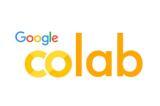1. Introduction to Google CoLab Environment
This initial section will familiarize you with the Google Colab interface and its core functionalities. You'll learn about the benefits of using Colab, such as free access to computing resources, ease of collaboration, and its browser-based accessibility.
2. Creating a Program File (C/C++) in Google CoLab Environment
Next, the course dives into the practical aspects of writing C and C++ code directly within Colab. You'll learn how to create new C/C++ source files (e.g., .c or .cpp files) or write code within Colab's code cells using specific commands. This section will cover the essential steps to get your code into the Colab environment, ready for compilation.
3. Compiling a Program File (C/C++) in Google CoLab Environment
Once your C or C++ code is ready, this module will guide you through the compilation process. You'll learn how to use common compilers like GCC (for C) and G++ (for C++) within Colab. This involves executing shell commands from Colab cells to transform your human-readable source code into machine-executable files. Error identification and basic debugging during compilation will also be touched upon.
4. Executing a Program File (C/C++) in Google CoLab Environment
The final section focuses on running your compiled C or C++ programs. You'll learn the commands to execute the compiled object code and see the output directly within the Colab interface. This module ensures you can successfully run your applications and verify their functionality, completing the development cycle within the Colab environment.





